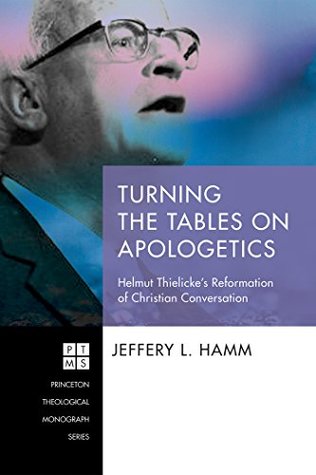Kindle Notes & Highlights
Read between
July 16, 2019 - May 13, 2022
Sometimes the fog grows so thick as I look ahead that I have no idea how I shall ever get through. But then I am given the grace to say Nevertheless, for suddenly He who was a man like you and me and who took upon himself the burden of this same misery is there beside me. Then suddenly, with him at my side, the barrier is broken and I am in the clear; I have experienced the miracle of getting through.
The believer survives faith-crisis only by an act of grace, that is, the miraculous intervention of Christ.
Instead of questions, I have on my lips only gratitude that I have been drawn over to that side by a power which is greater than I.
Consequently the dialogue with those outside can be carried on only if it has first taken place within myself as a monologue, that is to say, as a dialogue of the spiritual man within me with the natural man within me. And to that extent this dialogue is carried on, not in certainty and security, but in Anfechtung, in faith assailed and tempted by doubt and despair.
The apologist is sure that he possesses the truth and is confident that error is abroad somewhere fairly far from his gates.”
Thielicke seeks to win his audience by establishing solidarity with his conversation partner,220 and the way to find solidarity in dialogue is first and continually to speak to oneself in monologue.
Thielicke assures that all the apostasy in the outside world “is actually what I am, a condition from which I have been removed only by an act of grace over which I have no control.”
Faith itself is a gift (Eph 2:8).
Rather one is to seek solidarity with the unbeliever—that is, to love one’s secular neighbor—by presenting their conversation as a continuation of the conversation within oneself.
God is disclosed, not mythologically, but incarnationally, that is, in solidarity with humanity on its “ground.”
this means that God gives up his transcendence, sets himself against the horizon of our history, and in solidarity with our historical existence “is tempted like as we are”
The incarnation reveals ultimate solidarity.
Indeed, a theology of the cross shows that the solidarity which Christ shares with humanity does not end in the manger, with a bare incarnation, but at Golgotha since “the crib and the cross are hewn out of the same wood.”
Rather, I myself was the “battleground,” and I was well aware that wild wolves were howling in my subconscious too.
Thielicke’s dialogical approach seems to correspond with the apologetic culture in Germany after the Second World War: “In the last years the concept of ‘apologetics’ was frequently replaced with the concept of ‘dialogue’”
“The Christian . . . cannot possess the heaven of community with God without repeatedly making the descent into hell which takes place when he doubts and even despairs . . . within the framework of Anfechtung”
“apologetics is like trying to chase away shadows with a shadow.”
The first problem, as laid out in chapters 1 and 2, is that traditional apologetics speaks from a citadel of certainty instead of faith-crisis.
“all theology which pursues the genuine goal of ungenuine apologetics has a character of a ‘theology of Anfechtung.’”
traditional “apologetics leaves no room for genuine offense because it seeks to demonstrate the Christian faith . . . and therefore confuses faith with sight and sets itself, not under the Word, but rather above it.”
This is the exact reverse of what he sees as the offensive task of Christian conversation which rightly “attacks the world with its questions and forces it to face them.”
the apologetic aim is self-defeating, for it confirms the philosopher’s own presupposed autonomy rather than challenges one in one’s unbelief.
How can the finite apologist speak of the One who is infinite and incomprehensible? Thus: the analogy of being.
when the Apostle John discusses the Logos, he means Christ is “the climax of the mighty acts of God in which God establishes his relation to the world.”


